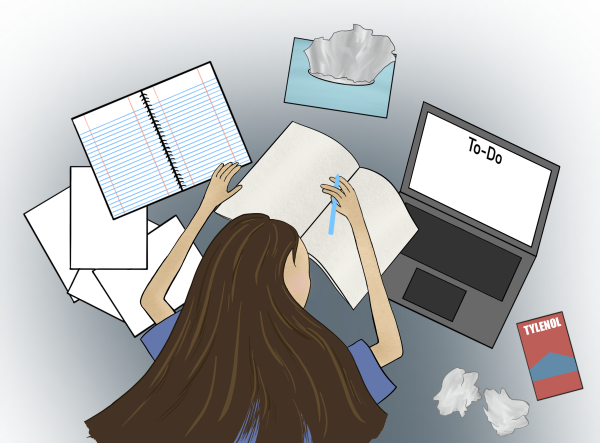Controversial Social Pod Practice Eases Emotional Strain
While shelter-in-place restrictions have yet to be lifted in Contra Costa County, there are those who have begun the practice of “quaranteaming.”
According to medical information site Healthline, a quaranteam is “a bubble of people who create their own tight-knit social circle that doesn’t interact with others outside their group.”
While quarantine is supposed to prevent individuals from physically interacting with others outside their immediate households, the emotional strain of spending so much time with the same people can become unbearable. Freshman Ashley Cloza said, “People are naturally social and crave contact, so isolation from others and being left alone with one’s thoughts [can] lead to overwhelming loneliness”.
There are even those who are unable to access psychological services as a result of the shelter-in-place restrictions. Freshman Diego Davila Gil said, “I think that quarantine has impacted mental health in the sense that people can’t connect with therapists and cannot attend group therapy. I personally have seen my mental health issues amplify during this quarantine”.
The article “The Implications of COVID-19 for Mental Health and Substance Use” by Kaiser Family Foundation reports that “nearly half (45%) of adults in the United States reported that their mental health has been negatively impacted due to worry or stress over the virus.” This is why many families and friends are now choosing to team up with other families to create social pods. The concept of quaranteaming may provide some mitigation of this stress.
Although most families stay in contact over the phone or computer, for some it is not the same as connecting in person. Freshman Kemora Golstein, whose family is quaranteaming with her aunt, said, “The difference [of talking over the phone] is you don’t have the same [personal] connection as [talking] in person.”
Yet this new practice does not abide by the county and state restrictions currently in place and may be contributing to further spread of the virus. According to Public Health Insider, transmission rates have been increasing.
“Yes, there are health risks because anyone who gets coronavirus won’t know they have it, and they come back home and give it to everyone in the family…I definitely think we have to be careful,” said Golstein.
So far, in Contra Costa County alone, there are 891 cases of the virus, according to local news platform Patch.
Quaranteaming, no matter who it is with, will always leave people vulnerable to the virus. “Some people are serious about not infecting others, and [are] conforming to distancing rules, while others choose to value their mental health and being with others more,” Cloza said.
Your donation will support the student journalists of Campolindo High School's The Claw. Your contribution will allow us to produce more issues and cover our annual website hosting costs.

Senior Maggie Doolittle has been a Girl Scout since kindergarten, racking up a total of 11 years in her troop. "I have continued [Girl Scouts] because...

